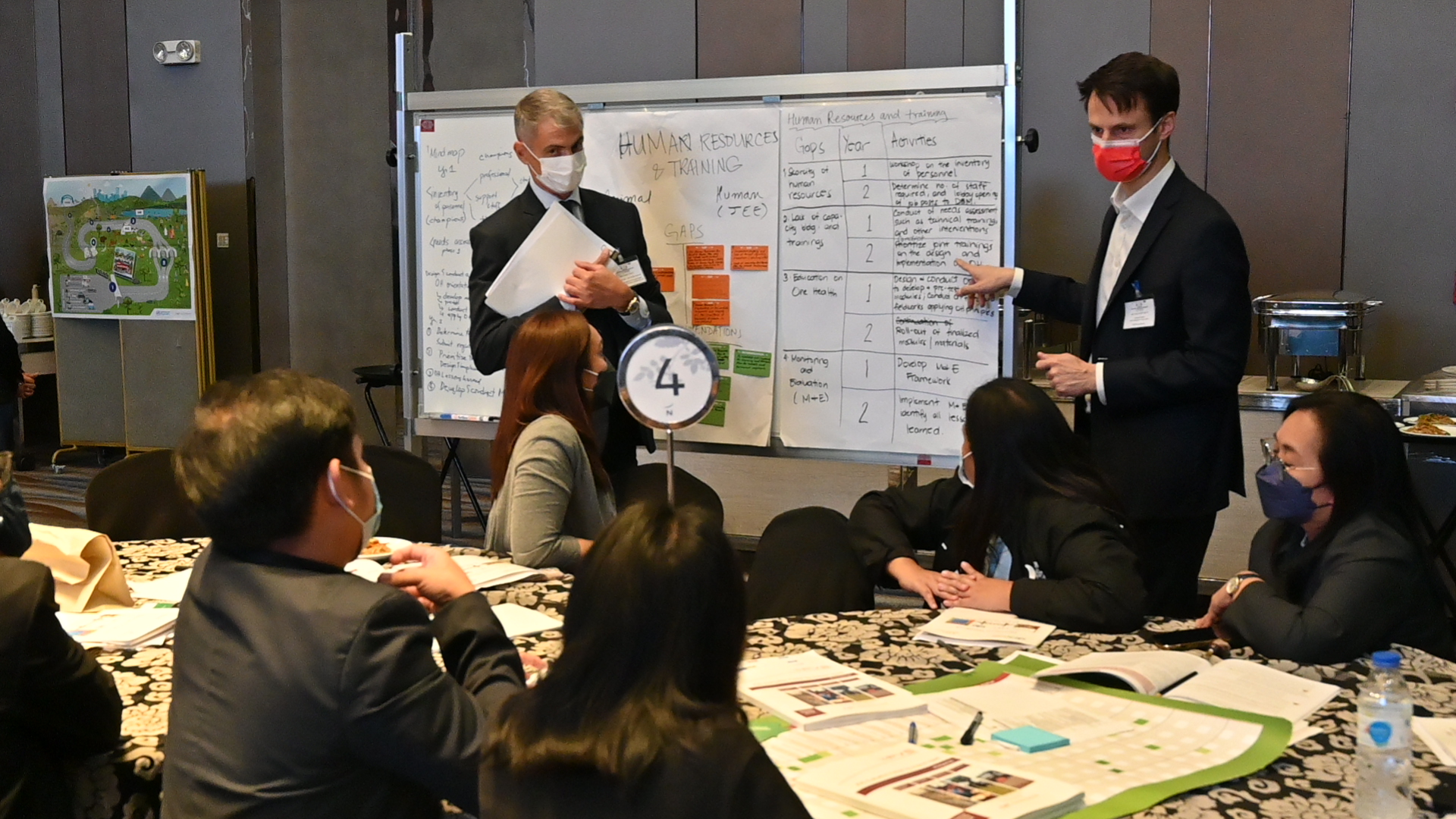Zoonotic diseases – diseases or infections transmitted from animals to humans – continue to be a threat to global health. Emerging infectious diseases pose challenges to countries like the Philippines with its active link to international travel and migration and the wide-ranging impact of the climate crisis.
Preventing, detecting, and controlling the emergence and re-emergence of zoonotic infections and future pandemics rely on the coordinated and collaborative action of the human, animal, and environmental health sectors — a One Health approach.
“In order to strengthen our capacity to prepare and prevent future pandemics, we need to have strong and sustained investment in an integrated and multi-sectoral One Health programme,” said Dr Ronello Abila, Sub-Regional Representative for Southeast Asia at the World Organisation for Animal Health (WOAH).
As the health of humans and animals is vitally interlinked, dealing with zoonotic diseases is a shared responsibility between public health, animal health, and environmental sectors.
“Current and emerging infectious zoonotic diseases show that we are all interconnected. Human activities affect animals, plants, and the environment we share with them. That is why we support and advocate for the One Health approach,” said Ms Natividad Bernardino, Office-in-Charge Director of the Biodiversity Management Bureau at the Department of Environment and Natural Resources (DENR).
“As 60% of all human infectious diseases, including COVID-19, are zoonotic, and that high-impact diseases affect livestock-derived food security, developing and integrating a more coherent One Health approach in our agri-food and health systems now is imperative,” said Ms Sheila Werz-Kanounnikoff, Food and Agriculture Organization (FAO) Representative in the Philippines.
Read: One Health Q&A
WHO, WOAH, FAO bring together human, animal, and environmental health actors to work together towards One Health
The World Health Organization (WHO), WOAH, and FAO have been supporting countries to improve their collaborative work towards One Health through a series of National Bridging Workshops.
The Tripartite organisations promote a multi-sectoral approach and response to food safety issues, zoonoses risks, antimicrobial resistance, and other threats to the human-animal-ecosystem interface.
In a National Bridging Workshop held on 23-25 August 2022, the Tripartite organisations facilitated a three-day interactive event bringing human, animal, and environmental health actors from national, regional, and local levels to review collaboration gaps in key technical areas.
These technical areas include coordination at high and local levels for policy and technical expertise, joint surveillance and response operations, risk communication, human resources and capacity building, and integrated logistics. 
Representatives from the Department of Health (DOH), the Department of Agriculture (DA), and DENR discussed the problems and gaps in collaboration between the animal, human, environmental health sectors based on the different technical areas of concern.
They also identified recommendations to address and strengthen coordination to prevent, detect, and control zoonotic diseases in the country by jointly using the WHO International Health Regulations Monitoring and Evaluation Framework tools and WOAH Performance of Veterinary Services Pathway.
“There are existing international frameworks on human and animal health that can guide governments in effectively managing infectious zoonotic emergencies. It is crucial to adapt these based on the Philippines’ One Health initiatives,” said Dr Graham Harrison, Officer-in-Charge, WHO Philippines.
The Philippines’ national agencies will be developing a joint One Health roadmap to protect the country’s people, environment, and economy amid the threat of emerging and recurring infectious diseases.
“We are working hard to make food safe, affordable, and accessible to 100 million Filipinos, but diseases such as African Swine Fever (ASF) and Highly Pathogenic Avian Influenza (HPAI) are making this more difficult. It is in this context that a national One Health Roadmap becomes invaluable,” said Dr Reildrin Morales, Assistant Secretary for Livestock and Concurrent Director of the Bureau of Animal Industry at the Department of Agriculture.
This workshop was made possible with support from the Australian Government and the United States Government.
Read: IHR-PVS National Bridging Workshop
One Health as one of the strategic thrusts of the Philippine government
The Philippines values the importance of the commitment and cooperation among all concerned sectors such as the national government agencies, local government units, civil society organisations, private entities, the communities, and other relevant sectors.
“One Health is one of the strategic thrusts of the government. However, we also need to collectively work on influencing key decision makers to tie them in on the things we want to do in this area so that we actually move forward,” said Officer-in-Charge Undersecretary Dr Beverly Lorraine Ho, Department of Health.
“Our collective analysis of the systems of collaboration and coordination can improve the Philippines’ One Health initiatives and further strengthen the Philippine Inter-Agency Committee on Zoonoses (PhilCZ),” said Dr Graham Harrison.
PhilCZ is the One Health mechanism of the country to strengthen the coordination between the animal-human health and environment sectors in preventing and controlling zoonotic diseases at the national and local levels.
The Tripartite organisations, the national government agencies, and other stakeholders continue to work together to fully implement the One Health approach in the Philippines.
